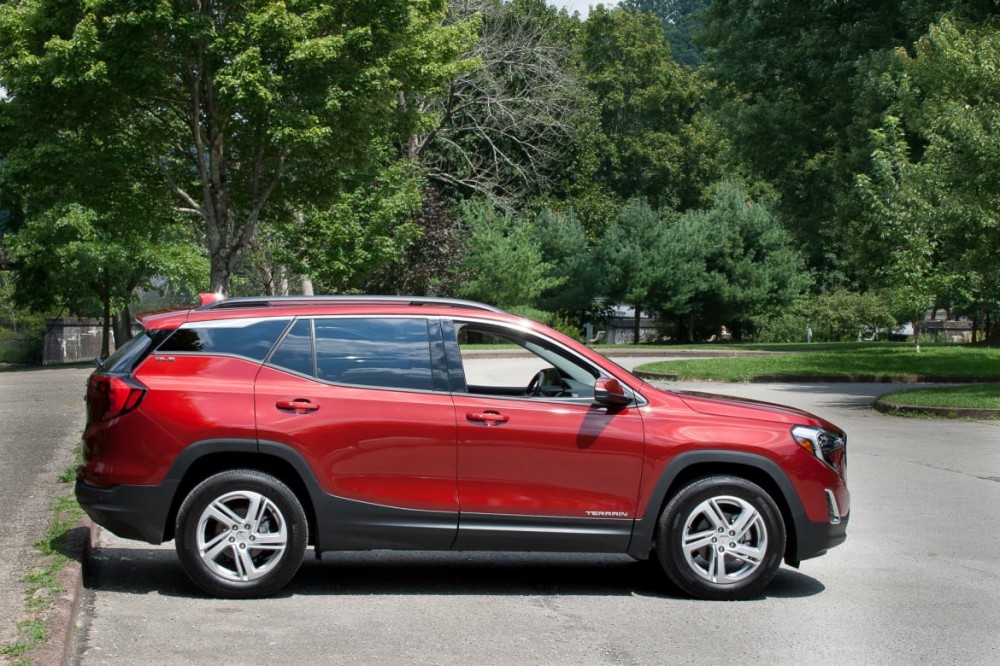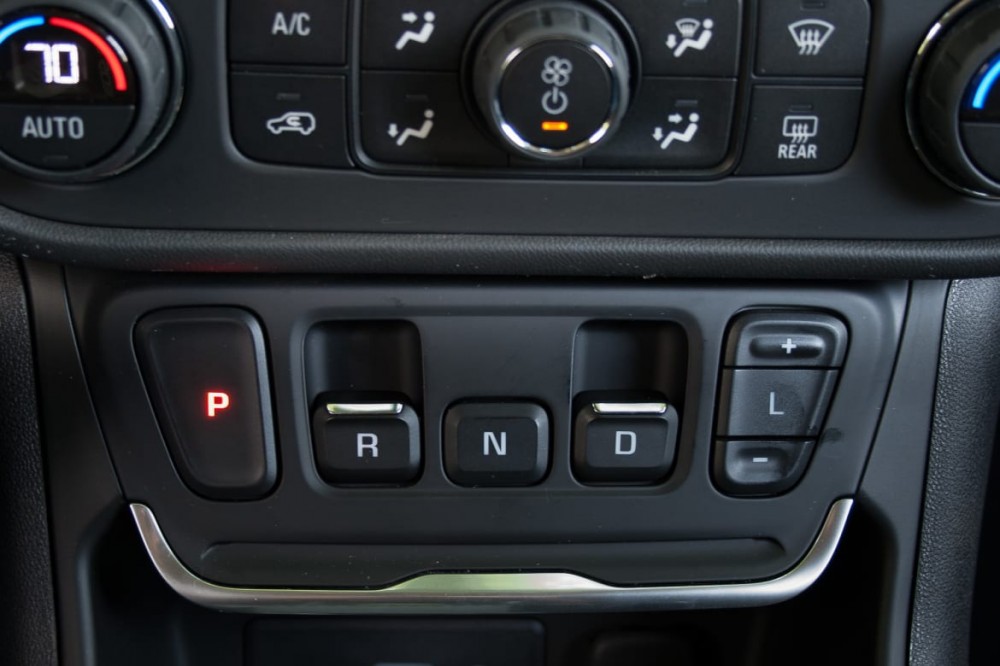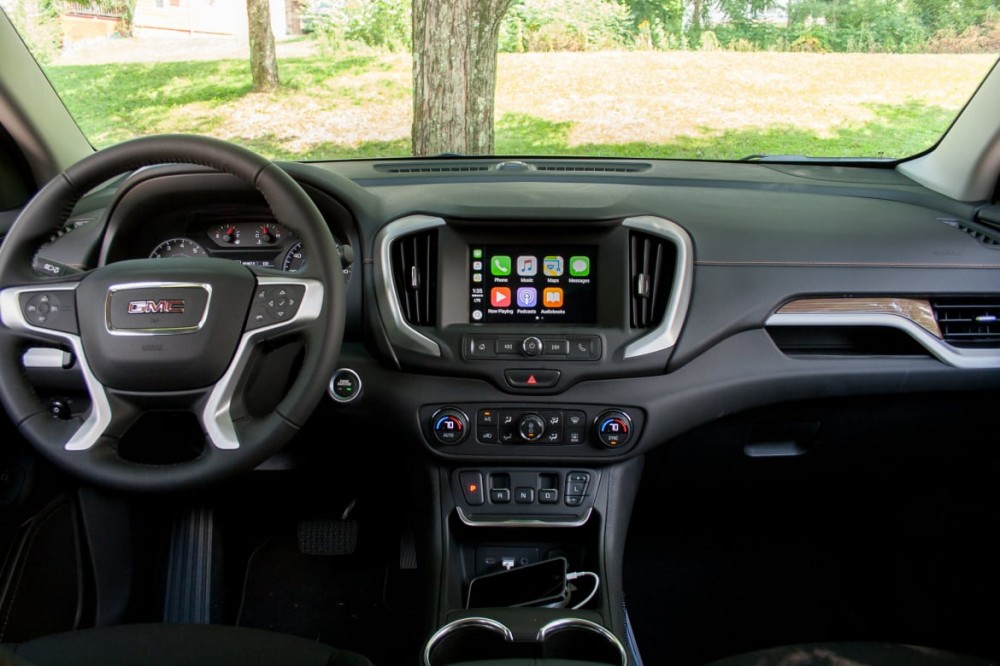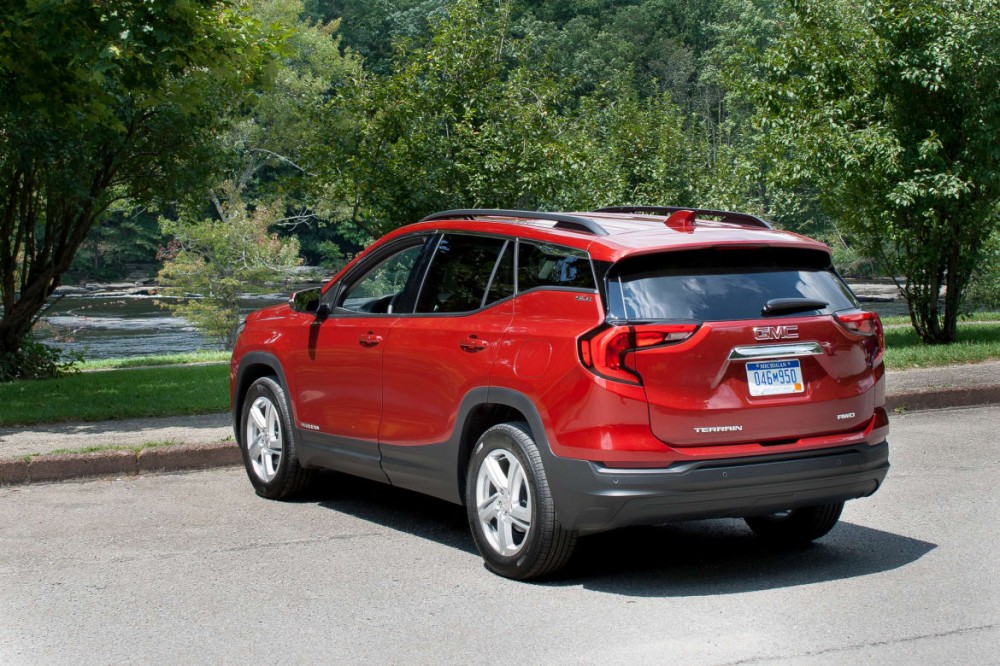CARS.COM — GMC has redesigned its Terrain SUV, first launched as a 2010 model, for the 2018 model year, and it's hitting dealerships now. The new Terrain is smaller and lighter than its predecessor, but with three available engines — including a turbo-diesel — and a trim-level range that stretches from base SL to upscale Denali, it gives SUV shoppers more choices than ever. I drove the new Terrain in Pittsburgh — one of the locations GMC used when developing it — and came away impressed with its refinement, comfort and performance.
Related: 2018 GMC Terrain: Transmission Training
Get 2018 GMC Terrain DetailsFind a 2018 GMC Terrain Near You
Compact SUVs offer a wide range of performance, from the poky Jeep Compass to the high-output turbocharged engine that's optional in the Ford Escape. The Terrain's three available engines have their own characteristics, but all of them deliver more than adequate power.

I was especially impressed with the base turbocharged 1.5-liter four-cylinder engine, which is rated at a healthy 170 horsepower and 203 pounds-feet of torque. Even so, I wasn't sure how the small engine would stack up in an all-wheel-drive Terrain SLE, but it felt reasonably quick when accelerating and still had a bit of reserve power for passing slower-moving traffic on a two-lane road. The engine teams with a nine-speed automatic transmission that made smooth, unobtrusive shifts and was willing to kick down to a lower gear when I needed more power. However, the automatic did tend to be in too high a gear when coming out of tight corners, which saps some of the engine's available power, but it was otherwise cooperative, exhibiting none of the unpleasant behavior we've experienced with other nine-speed transmissions like those in the Honda Pilot and Jeep Cherokee.
I was skeptical of the Terrain's new button- and toggle-switch-activated gear selector, but it was easier to use by feel alone than competing push-button systems. The horizontal layout of the Terrain's gear selector is key; the arrangement lets you use your index and middle fingers to quickly switch between Reverse and Drive when making a three-point turn, for instance. It didn't take long to get used to it.

The optional turbo 2.0-liter four-cylinder is considerably swifter and puts the Terrain's performance on par with Escapes that have the higher-output engine. With 252 hp and 260 pounds-feet of torque, this engine gives the Terrain the type of eager acceleration and high-speed passing power that's relatively rare among mainstream compact SUVs. You also hear more engine noise in the cabin compared with the 1.5-liter four-cylinder. The fact that the base four-cylinder drivetrain is so good means you needn't automatically choose the 2.0-liter engine, but there's also a clear distinction between the two in terms of performance, so if you're looking for extra power, get the 2.0-liter.
In a move that breaks with most of its competitors, the Terrain also offers an optional turbo-diesel 1.6-liter four-cylinder that teams with a six-speed automatic transmission. Rated at 137 hp and 240 pounds-feet of torque, the diesel is the fuel-economy leader of the trio with an EPA-estimated 28/39/32 mpg city/highway/combined with front-wheel drive. The 32-mpg combined rating is 4 and 8 mpg better than the gas 1.5-liter and 2.0-liter engines, respectively, and matches the combined-mpg estimate for the Toyota RAV4 Hybrid, which is all-wheel-drive only.

From the driver's seat, the diesel is notably louder than the gas engines whether idling or accelerating, but the clattery sounds that have defined diesels for years have been largely eliminated, replaced with a gravelly sounding growl. There's also more vibration in the cabin — including through the steering wheel — and accelerator pedal response is more gradual.
Aside from its impressive fuel economy, the diesel's abundant low-end torque is its other key selling point. With four adults aboard as well as some luggage, a front-wheel-drive turbo-diesel Terrain powered up hills without needing to downshift and accelerated to highway speeds easily.
I like how GMC has tuned the Terrain's suspension. Like a lot of small SUVs, it's on the firm side, and you feel that when crossing railroad tracks, but the ride is controlled and composed. The Terrain doesn't feel as athletic as the Escape when tossed into a turn, and the steering doesn't have any feedback, but it has good driving refinement like the redesigned Volkswagen Tiguan and is better than the Nissan Rogue in this regard. There's much more to the Terrain than just how it drives, and we'll cover things like its entertainment options, active safety options and cabin versatility in an upcoming review.
It's hard to stand out in the crowded compact SUV class, but GMC is in a good position to do just that with the redesigned Terrain, which keeps the roominess of its predecessor while adding modern drivetrains, tech features and design.









